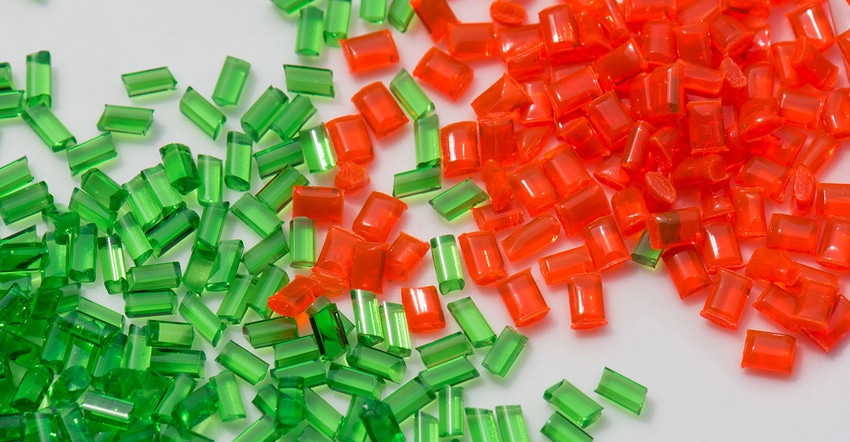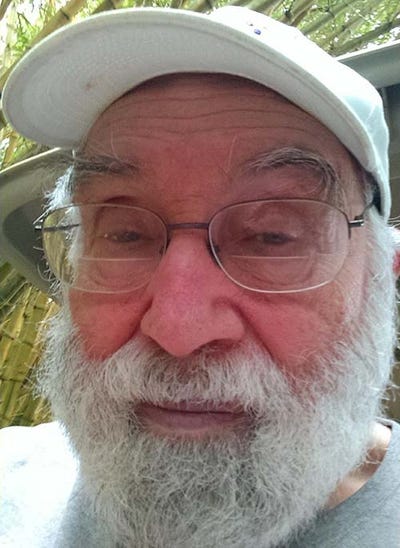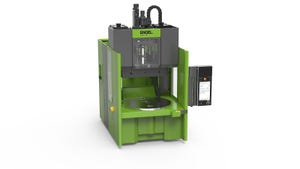'Tis the Season to Celebrate Extrusion
From the flame-retardant "needles" on PVC-based Christmas trees and the coated-paper packages that protect presents to many of the presents themselves, plastics extrusion makes it possible.
December 19, 2021

Christmas celebrates infancy. 'Tis the season of lullaby-carols, and the annual reminder that a baby was born in Bethlehem a very long time ago whose life and death changed the world. As an apolitical technical author, l’ll just say that I’m for anything that makes us kinder and more caring for others.
Well-meaning but misplaced plastiphobia has its origins in infancy, too — a baby gets everything without knowing how or why, as it is unable to understand explanation. And reliance on the unexplainable resides in all of us, making it more comfortable to ignore and even deny the natural laws of science and chemistry that created our materials.
Extrusion celebrates Christmas, too, with:
Flame-retardant "needles" on PVC trees;
insulation on all the wiring for the lights;
the coated-paper packages that protect our presents;
many of the presents themselves (Hula Hoops are still around);
synthetic-fiber clothing;
the film that bags and saves the leftovers from our feasts (we use our resources efficiently through in-house recycling).
Extrusion also makes our babies’ lives easier. Extrusion-blown baby bottles are usually polypropylene, not polycarbonate, but early PC bottles started the still-living belief that something called BPA is in every plastic, ready to poison us if we go near it. BPA is bisphenol A, a building block for polycarbonate — the material of our CDs and aircraft windows — and has no connection with any other plastics. Polycarbonate is too expensive to get involved in packaging, and in any case the BPA should all be gone when it is converted into the plastic. Numbers matter. In their need to avoid chemistry, our opponents have resorted to the fictitious chemical element Bolonium (symbol Bo).
More extruded baby-booners:
Liners for disposable diapers;
coated fabric for little mattresses;
squeeze tubes for rash treatment, but no toothpaste (no teeth yet);
hook-and-loop fasteners they can’t swallow;
wristbands for newborns (Buttercup’s lament).
If the newborn has a medical problem, today’s hospitals and clinics are loaded with extrusions: Tubing, PPE, blood bags, even coatings on single-use — a nicer word than disposable — cradle boxes to take home your new human.
For those in extrusion plants with a seasonal need, now’s a good time for serious machinery maintenance and inventory control, things you never have time for in the rush. Review formulations that you do yourself, or look at competitive materials and additives that might give you better or cheaper products next year. Review materials purchase specs — do you have them? And hold safety meetings to discuss the hazards of heat, moving parts, weight, electrics, slipperies, and the general problems of tiredness and the appeal of risk.
If you’ve read this far, I thank you and won’t go on. Instead, I’ll leave you with my plasticarol, to the melody of Mendelssohn’s Hark the Herald Angels Sing. If you’ve seen it before, look again, as I change the words but not its message from time to time:
Hark you plastics working people, Christmastime is here once more,
Each epoxy-coated steeple rings its bells from shore to shore,
Hark you parents, gramps, and cousins, give ye thanks for vinyl resins,
Polyethylene is cool, hope you all have a PEaceful Yule!
Polyethylene is cool, hope you all have a PEaceful Yule!

Allan Griff is a veteran extrusion engineer, starting out in tech service for a major resin supplier, and working on his own now for many years as a consultant, expert witness in law cases, and especially as an educator via webinars and seminars, both public and in-house, and now in his new audiovisual version. He wrote Plastics Extrusion Technology, the first practical extrusion book in the United States, as well as the Plastics Extrusion Operating Manual, updated almost every year, and available in Spanish and French as well as English. Find out more on his website, www.griffex.com, or e-mail him at [email protected].
No live seminars planned in the near future, or maybe ever, as his virtual audiovisual seminar is even better than live, says Griff. No travel, no waiting for live dates, same PowerPoint slides but with audio explanations and a written guide. Watch at your own pace; group attendance is offered for a single price, including the right to ask questions and get thorough answers by e-mail. Call 301/758-7788 or e-mail [email protected] for more info.
About the Author(s)
You May Also Like




